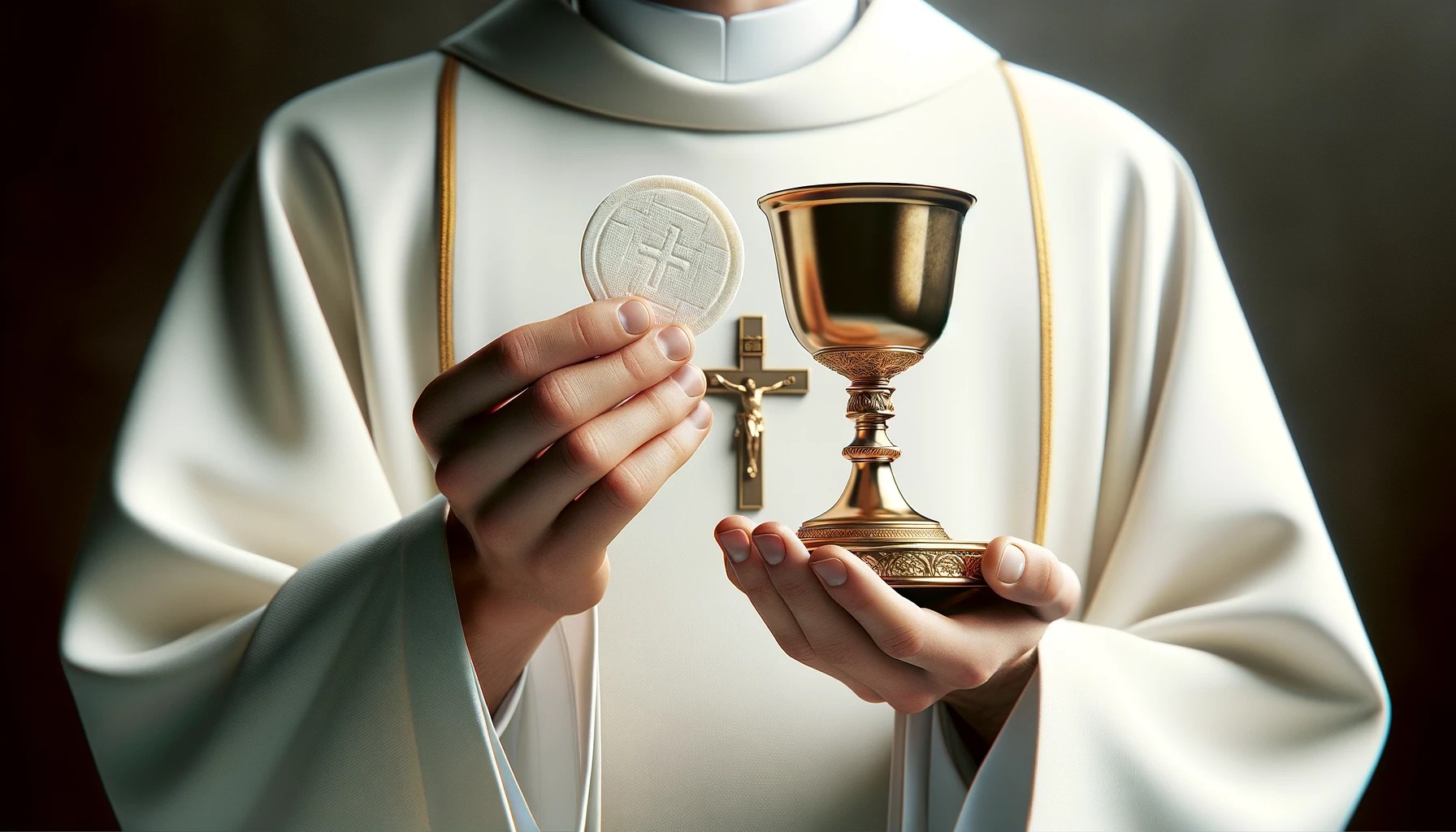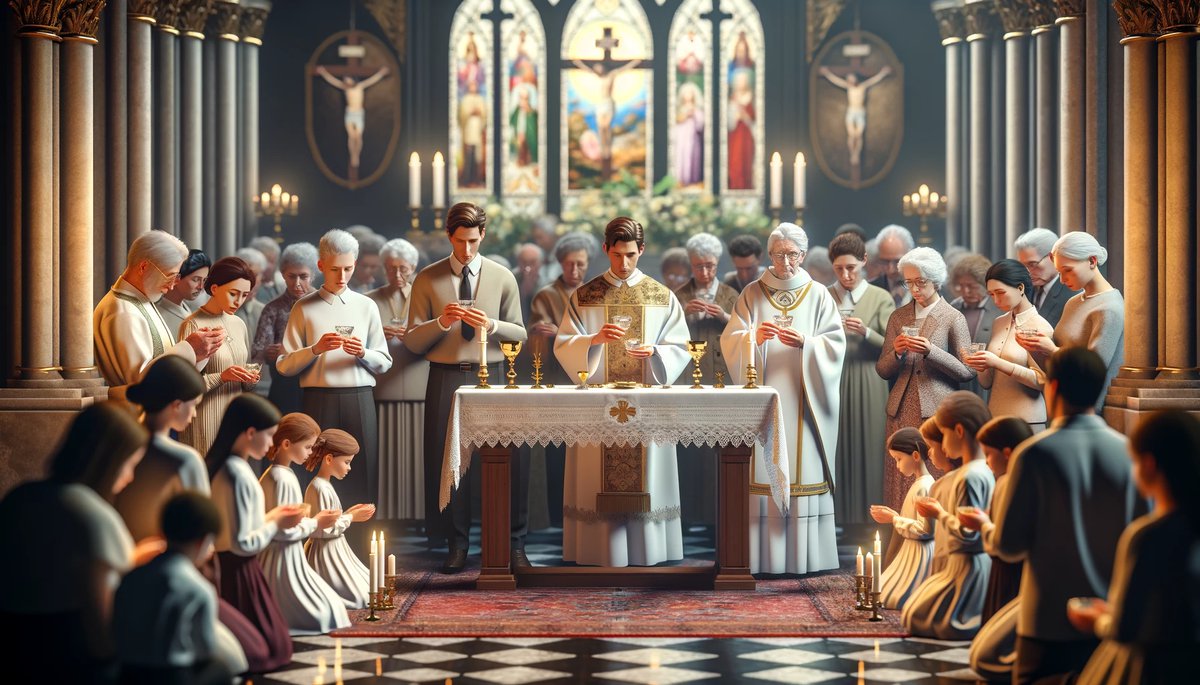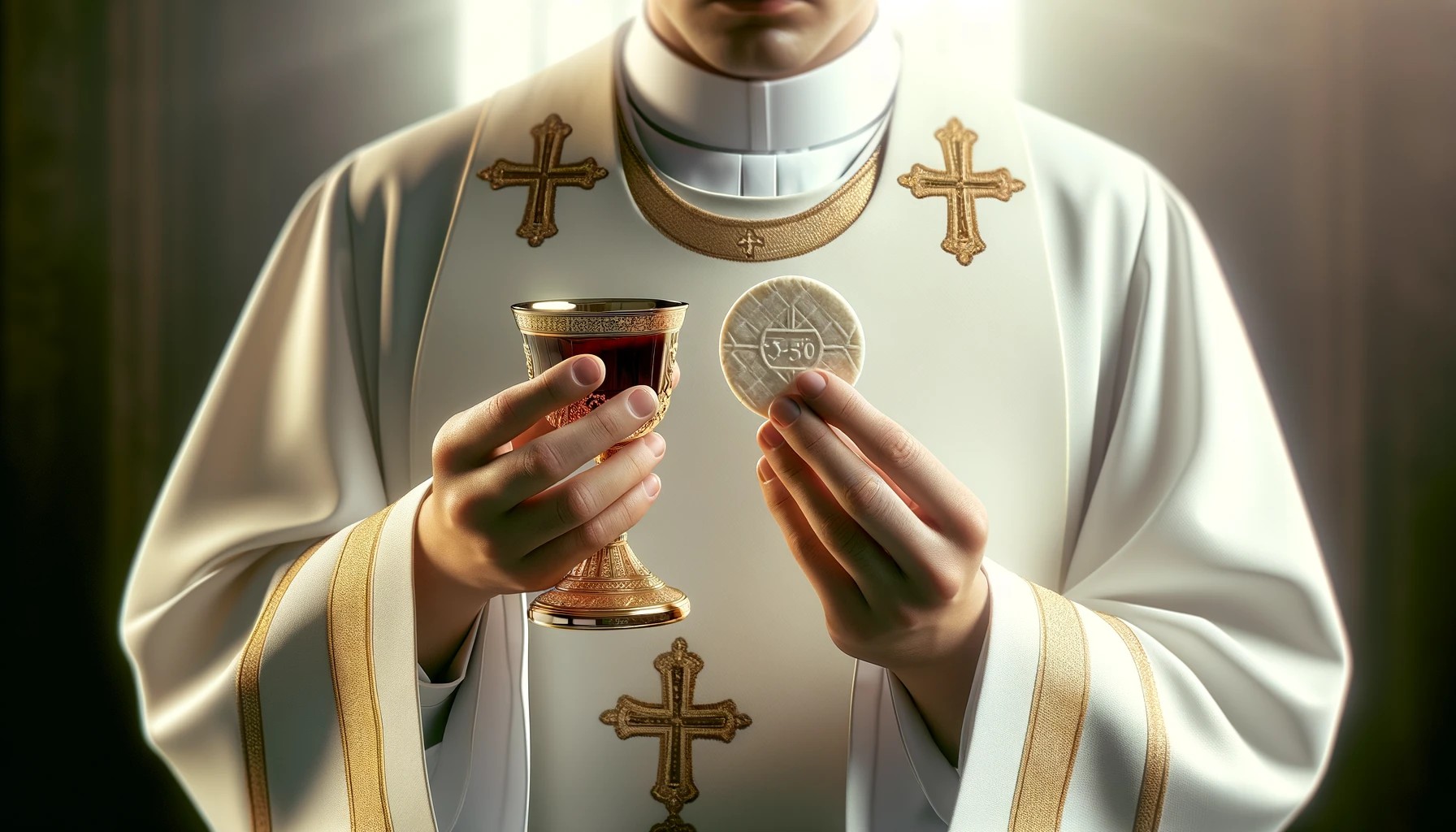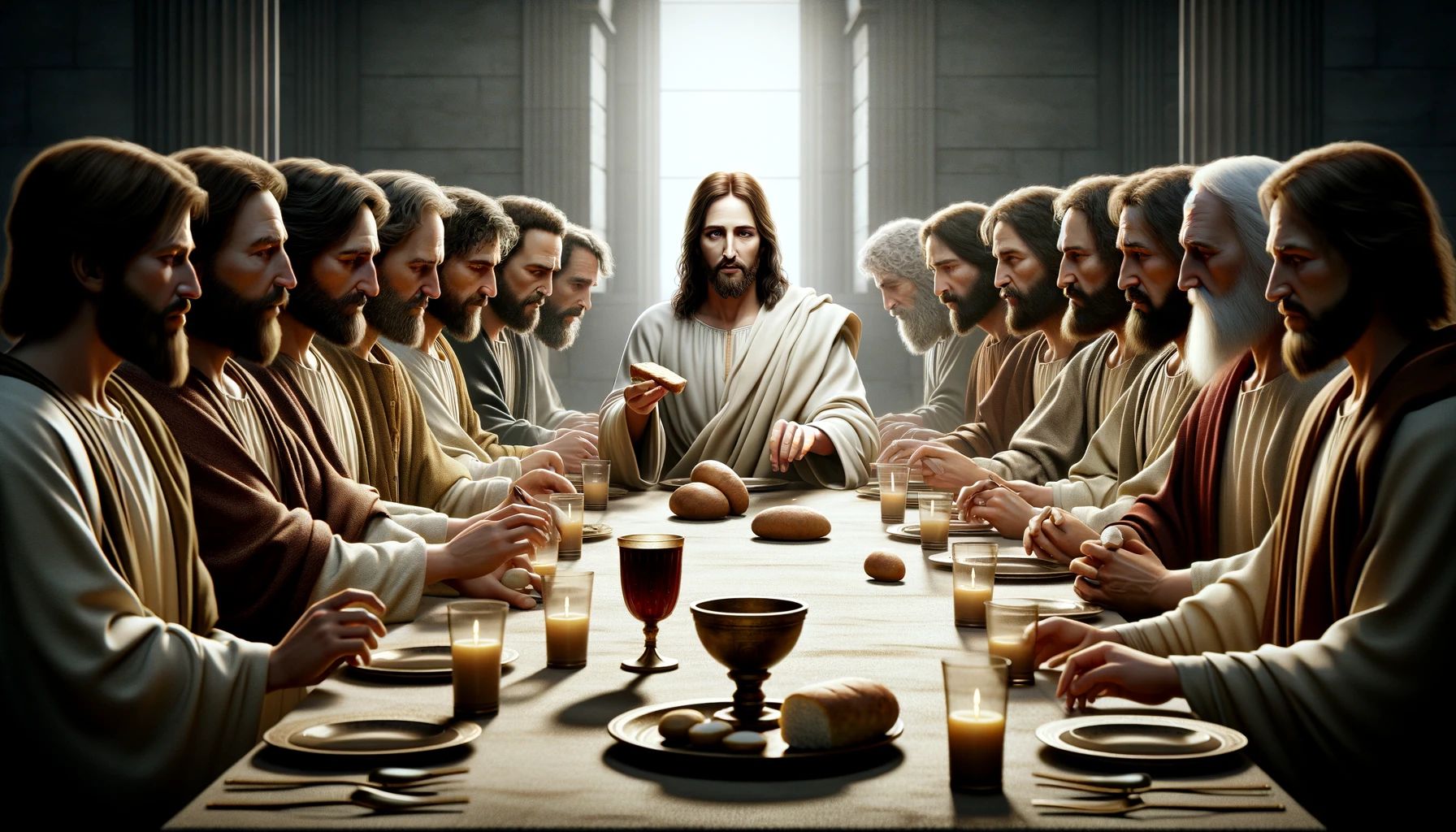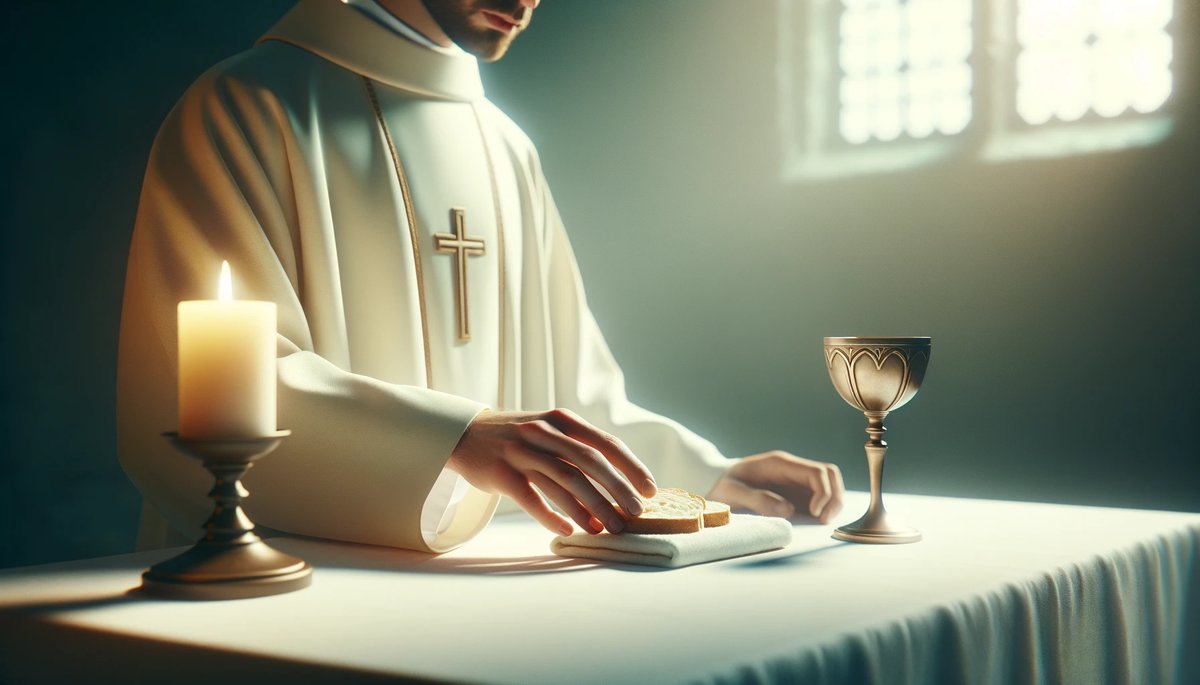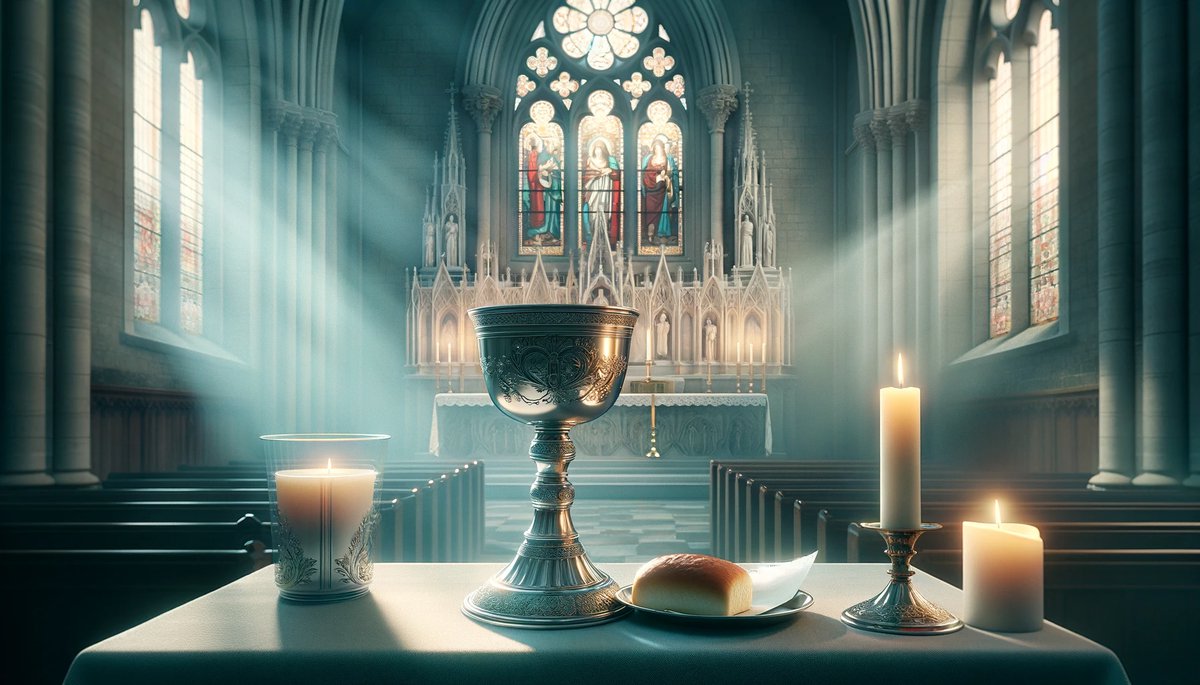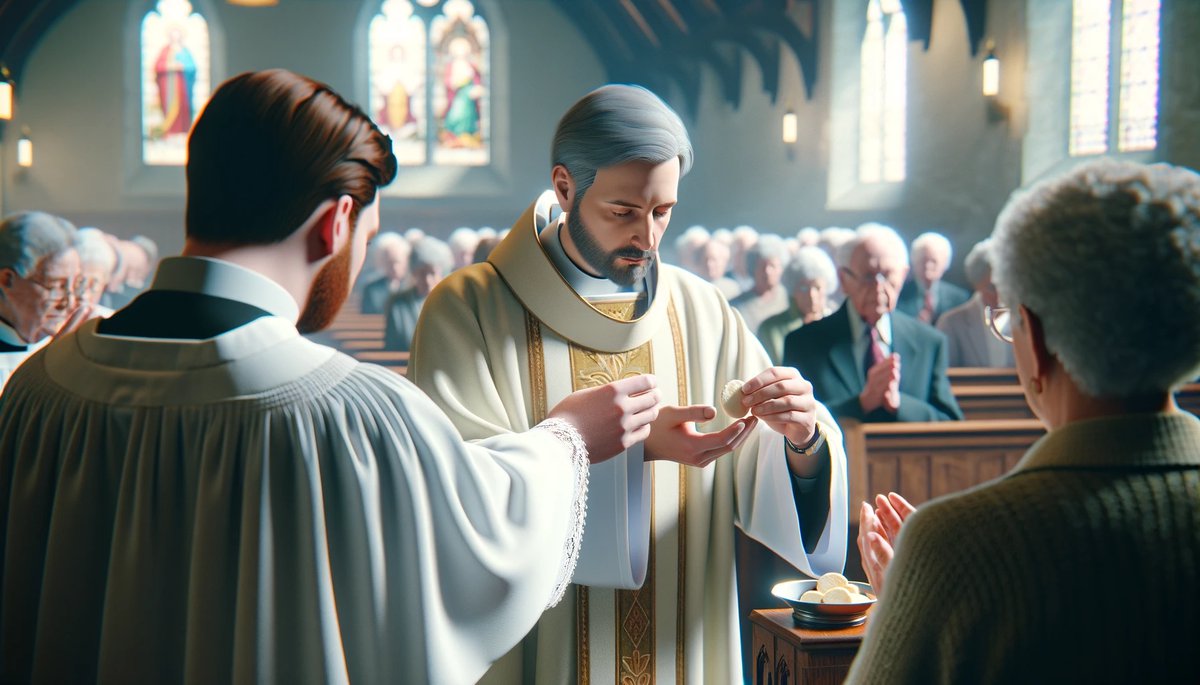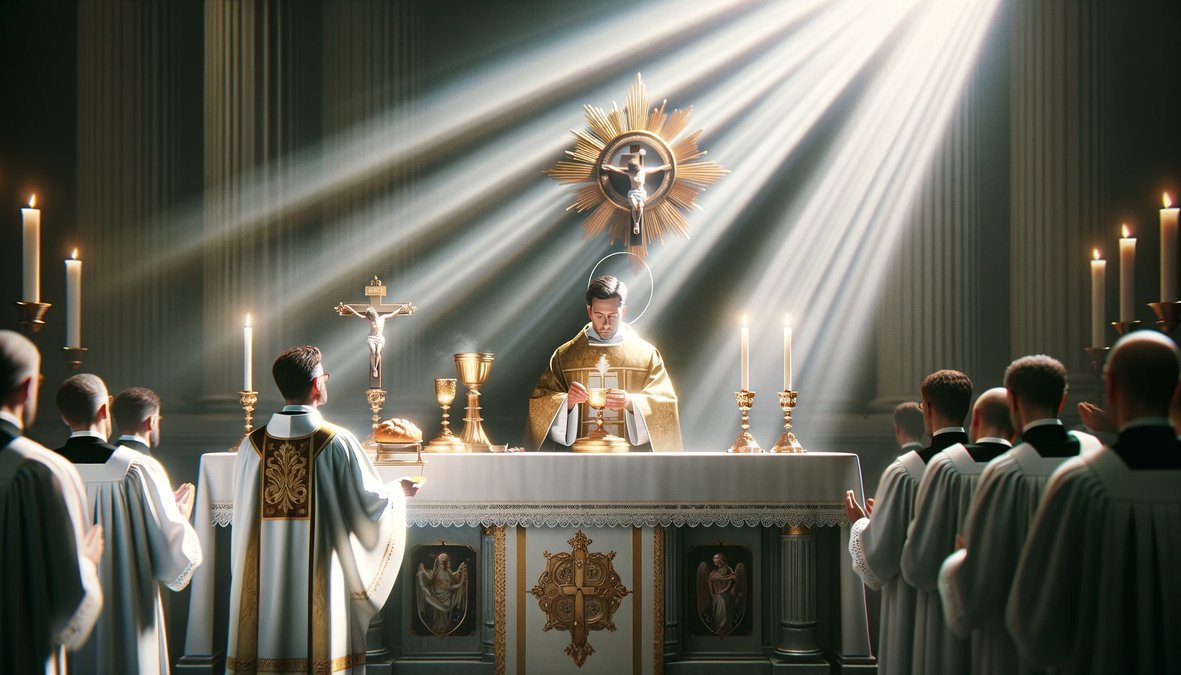Home>Theology and Spirituality>When Should Holy Communion Be Taken


Theology and Spirituality
When Should Holy Communion Be Taken
Published: February 25, 2024
Peter Smith, Editorial Director at Christian.net, combines deep insights into faith, politics, and culture to lead content creation that resonates widely. Awarded for his contributions to religious discourse, he previously headed a major organization for religious communicators, enhancing dialogue on faith's societal impacts.
Discover the significance of Holy Communion and the appropriate timing for partaking in this sacred ritual. Explore theological insights and spiritual guidance.
(Many of the links in this article redirect to a specific reviewed product. Your purchase of these products through affiliate links helps to generate commission for Christian.net, at no extra cost. Learn more)
Table of Contents
Introduction
Holy Communion, also known as the Eucharist or the Lord's Supper, holds a central place in the Christian faith. It is a sacred ritual that symbolizes the body and blood of Jesus Christ and is deeply rooted in the traditions of Christianity. The act of partaking in Holy Communion is a significant aspect of worship for many Christian denominations, and it carries profound spiritual and theological significance.
The practice of Holy Communion has been observed for centuries, dating back to the Last Supper, where Jesus shared bread and wine with his disciples, instructing them to do the same in remembrance of him. This pivotal event forms the foundation of the Christian sacrament of Holy Communion, which continues to be a cornerstone of Christian worship and spiritual life.
The act of partaking in Holy Communion is a deeply personal and communal experience for believers. It serves as a tangible expression of faith, unity, and remembrance of Christ's sacrifice. The ritual of Holy Communion is a sacred moment that transcends time and space, connecting participants with the profound spiritual legacy of their faith.
As we delve into the historical, theological, and practical aspects of Holy Communion, it is essential to explore the diverse perspectives and interpretations surrounding this sacred practice. Understanding the significance and implications of Holy Communion can provide valuable insights into its role within Christian worship and the spiritual lives of believers. Moreover, examining the various viewpoints on the timing of Holy Communion can shed light on the rich tapestry of traditions and beliefs that encompass the Christian faith.
In the subsequent sections, we will embark on a comprehensive exploration of Holy Communion, delving into its historical origins, theological underpinnings, and the diverse perspectives on its timing. By delving into these facets, we aim to gain a deeper understanding of the profound significance of Holy Communion within the Christian tradition.
Read more: When Should Catholics Kneel After Communion
Historical Background of Holy Communion
The historical roots of Holy Communion can be traced back to the Last Supper, a pivotal event in the life of Jesus Christ. According to the Gospels of Matthew, Mark, and Luke, the Last Supper took place during the Jewish festival of Passover, a time when Jesus gathered with his disciples for a final meal before his crucifixion. It was during this sacred occasion that Jesus instituted the ritual of Holy Communion, transforming the simple elements of bread and wine into powerful symbols of his body and blood.
The act of breaking bread and sharing the cup with his disciples held profound significance, as Jesus imparted a new meaning to these customary elements. He instructed his followers to partake in the bread, symbolizing his body, and the wine, symbolizing his blood, in remembrance of him. This act of communion was imbued with spiritual significance, signifying the sacrificial nature of Jesus' impending crucifixion and the establishment of a new covenant between God and humanity.
Following the Last Supper, the early Christian community continued the practice of Holy Communion as a central aspect of their worship and fellowship. The apostle Paul, in his first letter to the Corinthians, provided insights into the celebration of the Lord's Supper within the early Christian gatherings, emphasizing the solemn and reverent manner in which it was to be observed.
Over the centuries, the ritual of Holy Communion evolved within the diverse traditions of Christianity, taking on various forms and liturgical expressions. The early church fathers, such as Ignatius of Antioch and Justin Martyr, offered valuable insights into the significance of Holy Communion within the life of the Christian community, highlighting its role as a means of spiritual nourishment and unity among believers.
The historical background of Holy Communion reflects its deep roots in the life and teachings of Jesus Christ, as well as its enduring significance within the Christian faith. The Last Supper stands as a foundational event that continues to resonate through the centuries, shaping the practice of Holy Communion and imbuing it with profound theological and spiritual meaning for believers across denominational lines.
Theological Significance of Holy Communion
The theological significance of Holy Communion encompasses a rich tapestry of spiritual meanings and profound symbolism within the Christian tradition. At its core, Holy Communion is a sacramental act that embodies the central tenets of Christian theology, serving as a tangible expression of the redemptive work of Jesus Christ and the spiritual nourishment of believers.
Central to the theological understanding of Holy Communion is the concept of the real presence of Christ in the elements of bread and wine. This belief varies among Christian denominations, with some emphasizing a literal interpretation of Christ's presence in the Eucharistic elements, while others view it as a symbolic representation. The theological debates surrounding the nature of Christ's presence in Holy Communion have been a point of divergence and unity within the broader Christian community, reflecting the depth of theological reflection on this sacred practice.
Furthermore, Holy Communion is intricately linked to the themes of sacrifice, atonement, and covenant within Christian theology. The act of partaking in the bread and wine symbolizes the sacrificial offering of Christ's body and blood for the redemption of humanity. This profound act of self-giving love is central to the Christian understanding of salvation and forms the theological foundation of Holy Communion as a sacred rite of remembrance and participation in the redemptive work of Christ.
In addition, Holy Communion serves as a visible sign of the unity of the body of Christ, the Church. As believers partake in the Eucharistic meal, they are united in their shared participation in the life of Christ and the fellowship of the faith community. This theological dimension underscores the communal nature of Holy Communion, emphasizing the spiritual bond that unites believers across time and space through their shared participation in the sacred ritual.
Moreover, Holy Communion is deeply rooted in the concept of spiritual nourishment and sustenance. The act of partaking in the Eucharistic elements is viewed as a means of receiving grace, spiritual strength, and sustenance for the journey of faith. This theological understanding underscores the transformative power of Holy Communion in nurturing the spiritual life of believers and sustaining them in their Christian walk.
Ultimately, the theological significance of Holy Communion encompasses a multifaceted tapestry of spiritual meanings, reflecting the depth of Christian reflection on the redemptive work of Christ, the unity of the Church, and the nourishment of the faithful. This theological richness underscores the enduring significance of Holy Communion as a central sacrament within the Christian tradition, inviting believers to partake in the profound mysteries of faith and encounter the living presence of Christ in the sacred meal.
Different Views on the Timing of Holy Communion
The timing of Holy Communion has been a subject of diverse perspectives and practices within the Christian tradition, reflecting the varied theological, liturgical, and cultural contexts in which it is observed. Different Christian denominations and traditions approach the timing of Holy Communion with distinct theological emphases and practical considerations, contributing to a rich tapestry of beliefs and practices surrounding this sacred ritual.
In some Christian traditions, Holy Communion is celebrated as part of the regular Sunday worship service, often referred to as the Eucharistic liturgy. This practice aligns with the historical precedent of early Christian gatherings on the Lord's Day, where believers would come together to break bread and share in the cup as a central aspect of their communal worship. The Sunday celebration of Holy Communion underscores its significance as a focal point of Christian worship, providing a sacred space for believers to partake in the Eucharistic meal within the context of the faith community.
Conversely, certain Christian denominations observe Holy Communion less frequently, such as on a monthly or quarterly basis. This approach reflects a deliberate emphasis on the solemnity and preparation associated with receiving the Eucharist, often accompanied by specific liturgical seasons or themes within the church calendar. The less frequent timing of Holy Communion allows for a heightened sense of anticipation and reverence, as believers prepare themselves spiritually to partake in the sacred meal, emphasizing the significance of this sacramental act within the worship life of the church.
Furthermore, some Christian traditions incorporate Holy Communion into special services or liturgical occasions, such as Maundy Thursday, Good Friday, or other significant feast days within the liturgical calendar. These observances are often marked by distinctive liturgical rites and theological themes that accentuate the profound significance of Holy Communion within the context of specific events or seasons in the life of Christ and the church. By aligning the timing of Holy Communion with these significant moments in the Christian narrative, believers are invited to enter into a deeper contemplation of the redemptive mysteries embodied in the Eucharistic celebration.
Additionally, within the realm of individual spiritual practices, some Christians partake in Holy Communion as a personal devotional act, apart from the formal worship setting. This practice may involve receiving the Eucharistic elements in private prayer or in small group settings, emphasizing the intimate and personal dimension of encountering Christ in the sacred meal. The diverse timing of Holy Communion in these varied contexts reflects the multifaceted ways in which believers engage with the sacramental life of the church, embodying the rich diversity of Christian worship and spiritual expression.
The diverse views on the timing of Holy Communion within the Christian tradition underscore the multifaceted nature of this sacred ritual, encompassing a spectrum of theological, liturgical, and devotional perspectives. Whether celebrated as a central aspect of communal worship, observed with less frequency for heightened solemnity, or integrated into special liturgical occasions, the timing of Holy Communion reflects the rich tapestry of beliefs and practices that shape the spiritual life of believers across denominational lines. This diversity of perspectives invites a deeper appreciation for the profound significance of Holy Communion within the Christian tradition, illuminating the varied ways in which believers encounter the living presence of Christ in the sacred meal.
Factors to Consider in Deciding When to Take Holy Communion
The timing of Holy Communion is influenced by a myriad of factors that encompass theological, liturgical, pastoral, and communal considerations within the life of the church. These factors play a pivotal role in shaping the practice of Holy Communion and guiding the decisions regarding when and how often it is celebrated within Christian worship and spiritual life.
One of the primary factors to consider is the theological significance of Holy Communion within a particular Christian tradition. Different theological perspectives on the nature of the Eucharist, the real presence of Christ in the elements, and the sacrificial and communal dimensions of the sacrament can inform the frequency and timing of its celebration. The theological emphasis on the Eucharist as a central act of worship and spiritual nourishment often influences the regularity and prominence of Holy Communion within the liturgical life of the church.
Furthermore, the liturgical calendar and the observance of specific feast days and seasons within the Christian year play a significant role in determining the timing of Holy Communion. The alignment of the Eucharistic celebration with key events in the life of Christ, such as Christmas, Easter, and Pentecost, as well as with significant moments in the liturgical cycle, shapes the rhythm and timing of Holy Communion within the worship life of the church. Additionally, the theological themes and emphases associated with these liturgical seasons can impact the manner in which Holy Communion is integrated into the worship services.
Pastoral considerations also come into play when deciding on the timing of Holy Communion. The spiritual preparation of the congregation, the pastoral needs of the community, and the opportunities for meaningful participation and reflection all contribute to the discernment of when to celebrate Holy Communion. Pastors and church leaders often take into account the spiritual readiness of the congregation, the need for communal unity and nourishment, and the pastoral care of individuals in determining the timing of Eucharistic celebrations.
Moreover, the communal dynamics and worship practices of a particular faith community influence the timing of Holy Communion. The traditions, customs, and preferences of the congregation, as well as the communal rhythms of worship and spiritual formation, play a role in shaping when and how often Holy Communion is observed. The communal ethos and worship traditions of the church community contribute to the discernment of the most fitting timing for the celebration of the Eucharist.
In essence, the timing of Holy Communion is shaped by a complex interplay of theological, liturgical, pastoral, and communal factors that reflect the diverse tapestry of beliefs and practices within the Christian tradition. The discernment of when to take Holy Communion involves a thoughtful consideration of these multifaceted factors, seeking to honor the theological significance of the Eucharist, the rhythms of the liturgical calendar, the pastoral needs of the congregation, and the communal dynamics of worship and spiritual life. By attending to these factors, the church seeks to cultivate a rich and meaningful practice of Holy Communion that resonates with the spiritual journey of believers and embodies the profound mysteries of faith within the life of the faith community.
Read more: When Do You Do Holy Communion
Conclusion
In conclusion, the practice of Holy Communion stands as a sacred and multifaceted ritual that holds profound significance within the Christian tradition. From its historical roots in the Last Supper to its theological richness as a sacramental act, Holy Communion embodies the central tenets of Christian faith, serving as a tangible expression of the redemptive work of Jesus Christ and the spiritual nourishment of believers. The diverse perspectives on the timing of Holy Communion reflect the rich tapestry of beliefs and practices within the Christian community, encompassing a spectrum of theological, liturgical, and pastoral considerations that shape the celebration of this sacred ritual.
The historical background of Holy Communion, rooted in the Last Supper and the early Christian gatherings, underscores its enduring significance as a foundational practice within the life of the church. The theological significance of Holy Communion, encompassing the real presence of Christ, the themes of sacrifice and unity, and the spiritual nourishment of believers, illuminates the profound mysteries embodied in the Eucharistic celebration. Moreover, the diverse views on the timing of Holy Communion within the Christian tradition reflect the multifaceted ways in which believers engage with the sacramental life of the church, embodying the rich diversity of Christian worship and spiritual expression.
When considering the timing of Holy Communion, a myriad of factors come into play, including theological significance, the liturgical calendar, pastoral considerations, and communal dynamics. The discernment of when to take Holy Communion involves a thoughtful consideration of these multifaceted factors, seeking to honor the theological significance of the Eucharist, the rhythms of the liturgical calendar, the pastoral needs of the congregation, and the communal dynamics of worship and spiritual life. By attending to these factors, the church seeks to cultivate a rich and meaningful practice of Holy Communion that resonates with the spiritual journey of believers and embodies the profound mysteries of faith within the life of the faith community.
In essence, the celebration of Holy Communion transcends mere ritualistic observance; it is a sacred encounter with the living presence of Christ, a communal expression of faith, and a spiritual nourishment for the journey of discipleship. As believers partake in the Eucharistic meal, they are invited to enter into the depths of Christian mystery, uniting with the historic and ongoing narrative of God's redemptive work in the world. The diverse perspectives and considerations surrounding the timing of Holy Communion serve to enrich the spiritual tapestry of the Christian faith, inviting believers to engage with the profound significance of this sacred ritual in ways that resonate with their theological convictions, communal worship practices, and spiritual formation.
Ultimately, the celebration of Holy Communion, regardless of its timing, serves as a poignant reminder of Christ's sacrificial love, the unity of the faith community, and the transformative power of encountering the living presence of Christ in the sacred meal. It stands as a timeless and sacred practice that continues to shape the spiritual lives of believers and embody the enduring legacy of Christ's redemptive work within the life of the church.


